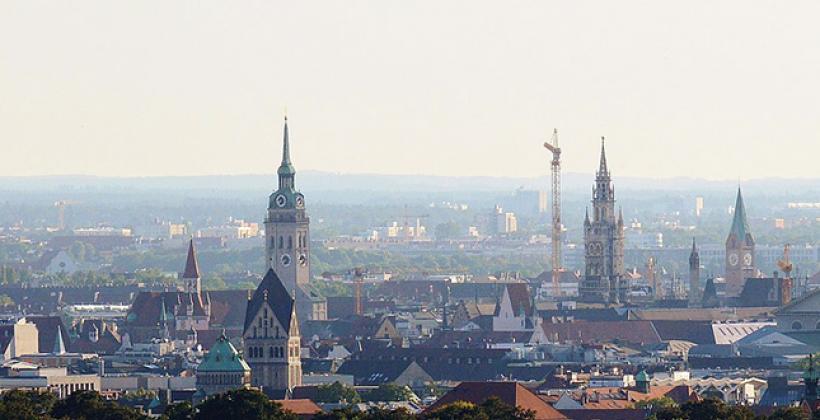
Location
Description
The E2REBUILD demonstration in Munich, Germany consisted of two blocks of residential multi-storey buildings in the suburb of Sendling, built in 1954. The buildings, owned by the public housing company GWG München, represented uniform standard blocks built in the post-war decade of the 1950s to fulfil urgent housing needs, with three storeys and accessed by inner staircases. The resources were quite poor concerning material, construction and design, resulting in a lack of variability, technical facilities, daylight and comfort inside the buildings. Heating was provided before the refurbishment individually.
The Munich demonstration project was completed in a year and fully occupied in the summer of 2012. The building has been fully retrofitted, including the replacement of the attic by an additional floor to create more rental space. Residents were moved out during the renovation process.
The demonstration in Munich (Germany) consisted of two blocks of residential multi-storey buildings in the suburb of Sendling, built in 1954. The buildings were typical examples of the concrete brick constructions, built throughout Germany in the post-war era. The buildings are owned by the public housing company GWG München. The energy demand has been estimated to drop after the retrofit from 220 kWh/m²/year to 20 kWh/m²/year.
After about one year of construction the Munich demonstration project was completed and fully occupied in the summer of 2012. The building has been fully retrofitted including the replacement of the attic by an additional floor to create more rental space. Residents have been moved out during the renovation process. The building envelope is improved by an additional layer of prefabricated insulated timber elements (U-value 0.14 W/m²K) with modern highly insulated windows. The thermal bridges were eliminated by cutting off the cantilevering concrete balconies and replacing them with free standing balconies.
Demo Site Expected Impact
The Munich demonstration site consists of an overall gross floor area of 2012 m² before the refurbishment and 3323 m² afterwards.
The energy consumption figures for the demonstration site were monitored before and after the works resulting in 292 and 75 kWh/m²/yr, respectively. The monitoring values show that the heating demand for space heating exceeded 280 kWh/m²/yr before the project and represented the largest energy consumption. After the refurbishment, this consumption was reduced to 50 kWh/m²/yr. In this case, no data for electricity consumption was provided.
The CO2 emissions and total primary energy have been calculated using the national electricity factors provided by the project and literature. The CO2 emissions were reduced by 265 tonnes every year. The primary energy savings were 780 MWh.
Technologies
Buildings and energy
The refurbishment measures implemented in Munich featured:
Energy efficiency in buildings
- Retrofitting the building envelope
- Additional layer of prefabricated insulated timber elements (U-value 0.14 W/m²K) with modern, highly insulated windows
- Thermal bridges were eliminated by cutting off the cantilevering concrete balconies and replacing them with free-standing balconies
- Facades were renovated
- Building services (HVAC and lighting)
- Optimised lighting
- Mechanical ventilation system with heat recovery
Energy systems integration
- Cogeneration (CHP)
- Thermal collectors
The investment cost for the intervention was EUR 2337/m², adding up to a total of EUR 7.76 million. According to provided data, the yearly cost savings for energy result in EUR 76 435 for monitored values. Therefore, the annual costs after renovation equal to EUR 24 697. The payback period according to the data provided and SCIS calculations is more than 30 years.
The financial analysis shows that the profitability of the project is not given due to the high investments in comparison to the low energy cost savings. This however does not reflect non-monetary benefits that might occur through the implementation.
Building aspects
- Building Energy Services
- heating (only)
- Installed Renewable Energy Sources
- solar thermal collectors
- Technology used to supply the buildings
- micro CHP
Thematic Field
- Refurbished Building(s)
